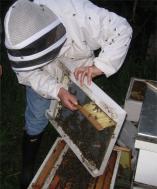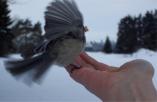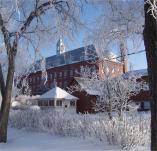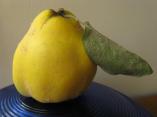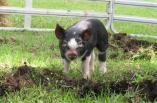Sunday was another one of those floor-to-ceiling poetry readings, with 10 on the menu. Luckily two were unable to attend (a third likewise but she’d enlisted her sister to read in her place) so it was a little shorter than it would have been otherwise.
I’m sure I’ve moaned about this style of reading before; it is, I feel, far too common in today’s poetry programming to attempt to squeeze as many poets as possible into a single event. The reading turns into a marathon, and the one or two you came to hear are lost in the numbing volume of the whole. You don’t get enough of the ones you want to hear, and perhaps you hear too much of those you don’t. And everyone else just doesn’t register.
Magazine launches – where 5 or 10 people come and read a poem they’ve had published in that issue, with perhaps one other – are one thing, and I’m ok with them as long as someone keeps the readers moving along (when faced with a long list of readers, the eye of the audience turns naturally to the clock).
But on Sunday, we were at this particular two hour event to hear a few minutes each of 10 first collections by 10 different readers. Another problem I have with these events is that the readers are introduced in volume, and if you aren’t familiar with them, as I mostly wasn’t, by the time you’ve heard the list of credentials and the readers take the stage you lose track of who of the five poets this half you’re hearing and what their background is. None of them thinks to say their name, or give the bridge into their work as a well composed introduction is meant to do. I’d rather each poet were treated with singular dignity – introduced one at a time, giving the audience a moment to change gears – instead of being bulk processed. There, that’s my rant done for today.
We did have an impressive list of readers, and – my grievances aside – I can totally understand why these 10 readers were chosen to celebrate the Poetry School’s 10 years; the numbers have a nice symmetry and you don’t have to narrow what must be an enormous list of achievers down quite so much to a more manageable number.
Here’s the list: Chris Beckett, Melanie Challenger (represented by her very able sister), Claire Crowther, Helen Farish (not present), Martha Kapos, Sharon Morris, Roger Moulson, Daljit Nagra, Anne Ryland, Greta Stoddart (not present). A new poem of Stoddart’s, called Drawing Breath, did take my breath away, but with my increasingly taxed powers of concentration I confess that was the only poem I heard that stays with me. And it’s not the fault of the readers or the poetry. I guess I needed to pace myself better. Live and learn.
Next up was a more manageable one-man show, by CK Williams, who led us through umpteen drafts of one of his poems. Fortunately he didn’t bring all 255 versions of this single poem (actually I don’t think 255 was the final count, more of a midpoint) which changed title several times, shape certainly, and whose themes shifted in and out of focus while he tried out different images, many of which he was so fond of he got new poems out of them. There followed a good substantial Q&A; session hosted by Fiona Sampson. One of the last questioners asked for advice about how to – as he’d put it (quoting others) – create the poet who was to create the poem. His answer was simple: read poetry. But not everyday stuff, he added: read great poets.
Well. That was good. Then Monday I wandered over to the Troubadour which has changed so much since my day. Today’s Troub is a young noisy place. Well groomed couples were canoodling over their two-for-one happy hour cocktails (cocktails??) to the sounds of Bob Marley. The dark wood twosome booths are mostly gone. The place is twice as big now they’ve knocked it through and put in a deli next door. There are semi-integrated toilets where the genders meet around a big round sink and take turns watching the skin on their hands flap in the high power wind of the hand dryer. Nothing so new here, really. It’s been like this for a few years, but I sat and really looked at it for a while on Monday.
The most shocking change is the basement, where the poetry happens, and which I reflected I’ve now seen in three incarnations. The first, which I remember from circa 1988, was a dark, smoky room with a blanket hung over the door at the bottom of some steep steps; on poetry nights it seemed to be always dim and full of random crazies. The second was a cleaned-up version with a small stage, but a door down from the kitchen that sometimes opened inopportunely, and a guaranteed interruption by emergency siren on the road above at least once in every reading. Now we have a big L-shaped space with odd little private rooms out of sight of the stage that are – in poetry readings at least – never used. And a bar, so you don’t have to rush upstairs at the break for replenishment. And quite a few benches or chairs with backs nowadays, not just back-breaking stools.
The poetry programming has put on a little heft here too: no more one- or two-poet nights; four readers shared the stage on Monday. The star turn and concluding reader was CK Williams, whose Collected Poems is a serious doorstop not realistically in the purchasing (or more accurately carrying) range of a migrant like myself. Roz Goddard, Birmingham’s Poet Laureate, read first; then a southern voice, Janice Moore Fuller; then Brightonian Jackie Wills.
